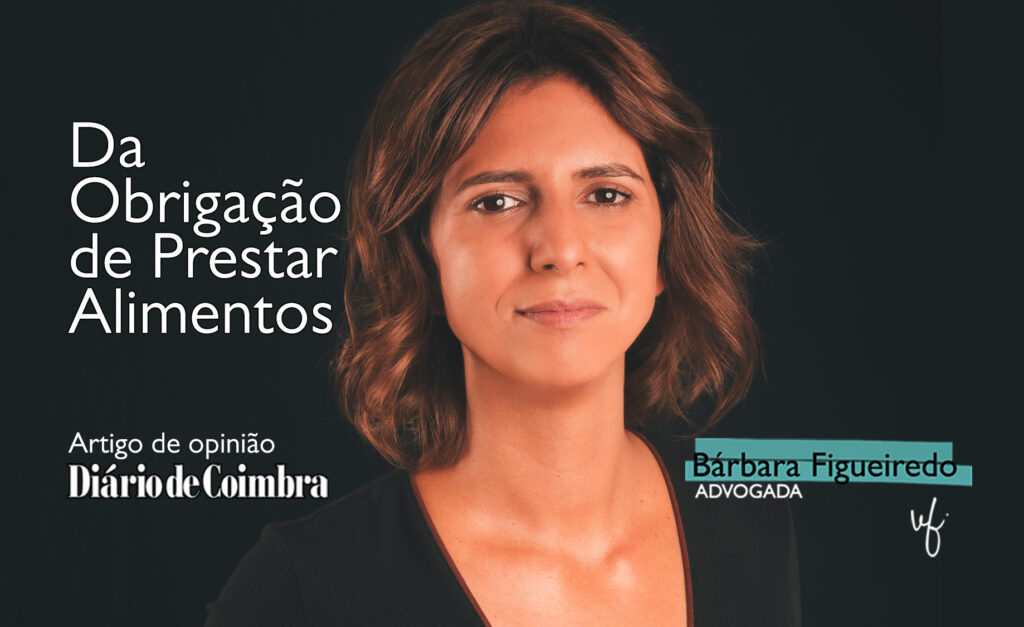On the Duty to Provide Maintenance

April 28, 2025
Opinion piece by Bárbara Figueiredo published [in Portuguese] in the Diário de Coimbra newspaper
Article 2003(1) of the Portuguese Civil Code states that “maintenance” is understood as everything indispensable for sustenance, housing, and clothing, adding in paragraph 2 that maintenance also includes the instruction and education of the recipient if they are a minor.
Typically, we associate maintenance, or the obligation to pay it, with the relationship between parents and children, usually in the context of divorce or separation of property. After all, it is (almost) unquestionable that parents must ensure the sustenance, education, and well-being of their children until they reach adulthood.
However, what many do not know is that this obligation is not one-directional. In fact, under our legal system, the duties of assistance among family members — which is what we are talking about — extend beyond childhood (a parent is obliged to pay maintenance to a child up to the age of 25 if the child is studying) and can even reverse over a lifetime.
Indeed, under Article 2009 of the Civil Code, those obliged to provide maintenance are the spouse or ex-spouse, parents, children, grandparents, and siblings, in that order.
Thus, bearing in mind that maintenance should match the means of the provider and the needs of the recipient, an ex-spouse may be ordered to pay maintenance after a divorce. An adult child may be legally obliged to support an elderly parent. A sibling may have to help another sibling in financial difficulty.
Therefore, beyond the classic cases of maintenance (from parents to minor children and sometimes to an ex-spouse), the law also provides for situations where, for example, a child might have to pay maintenance to their father, naturally requiring that the child is financially able and the parent is in need. Economic capacity on one side, need on the other.
But what does “need” mean in practice? And is it fair for someone to have to assist relatives with whom they have, for example, no emotional bond? If a father who is now seeking support never cared for the child he now expects help from, is it fair to oblige the child to assist? Or if he lived irresponsibly, never trying to work?
To avoid unfair decisions, all the specific circumstances of each case must be carefully considered. Thus, even if there is both capacity and need, maintenance can be refused based on the principle of good faith — for example, if the father now seeking maintenance was completely absent from the child’s life.
Good faith, therefore, acts as a safeguard that aligns the letter of the law with prevailing moral standards.


